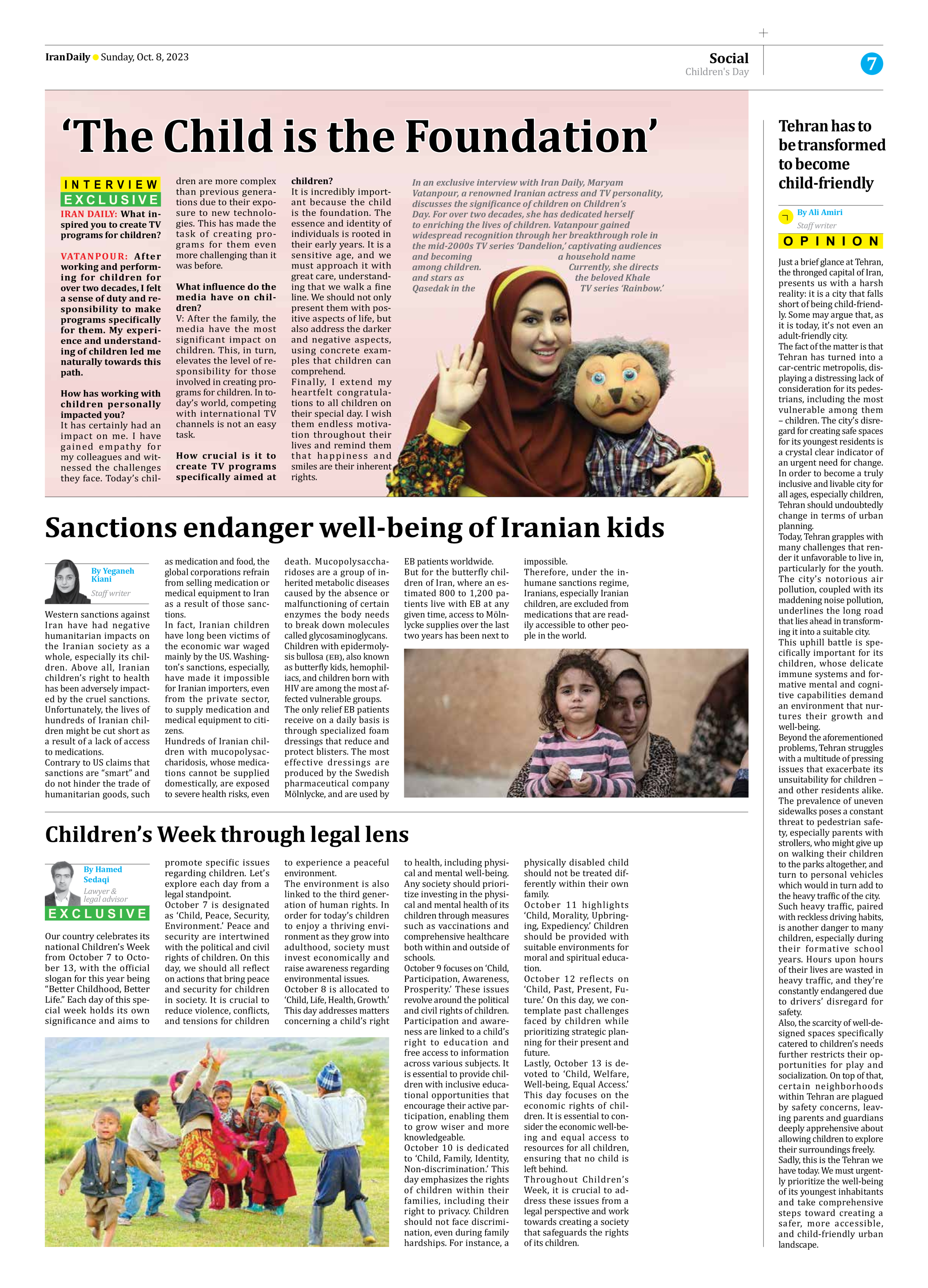
Sanctions endanger well-being of Iranian kids
By Yeganeh Kiani
Staff writer
Western sanctions against Iran have had negative humanitarian impacts on the Iranian society as a whole, especially its children. Above all, Iranian children’s right to health has been adversely impacted by the cruel sanctions. Unfortunately, the lives of hundreds of Iranian children might be cut short as a result of a lack of access to medications.
Contrary to US claims that sanctions are “smart” and do not hinder the trade of humanitarian goods, such as medication and food, the global corporations refrain from selling medication or medical equipment to Iran as a result of those sanctions.
In fact, Iranian children have long been victims of the economic war waged mainly by the US. Washington’s sanctions, especially, have made it impossible for Iranian importers, even from the private sector, to supply medication and medical equipment to citizens.
Hundreds of Iranian children with mucopolysaccharidosis, whose medications cannot be supplied domestically, are exposed to severe health risks, even death. Mucopolysaccharidoses are a group of inherited metabolic diseases caused by the absence or malfunctioning of certain enzymes the body needs to break down molecules called glycosaminoglycans.
Children with epidermolysis bullosa (EB), also known as butterfly kids, hemophiliacs, and children born with HIV are among the most affected vulnerable groups.
The only relief EB patients receive on a daily basis is through specialized foam dressings that reduce and protect blisters. The most effective dressings are produced by the Swedish pharmaceutical company Mölnlycke, and are used by EB patients worldwide.
But for the butterfly children of Iran, where an estimated 800 to 1,200 patients live with EB at any given time, access to Mölnlycke supplies over the last two years has been next to impossible.
Therefore, under the inhumane sanctions regime, Iranians, especially Iranian children, are excluded from medications that are readily accessible to other people in the world.







